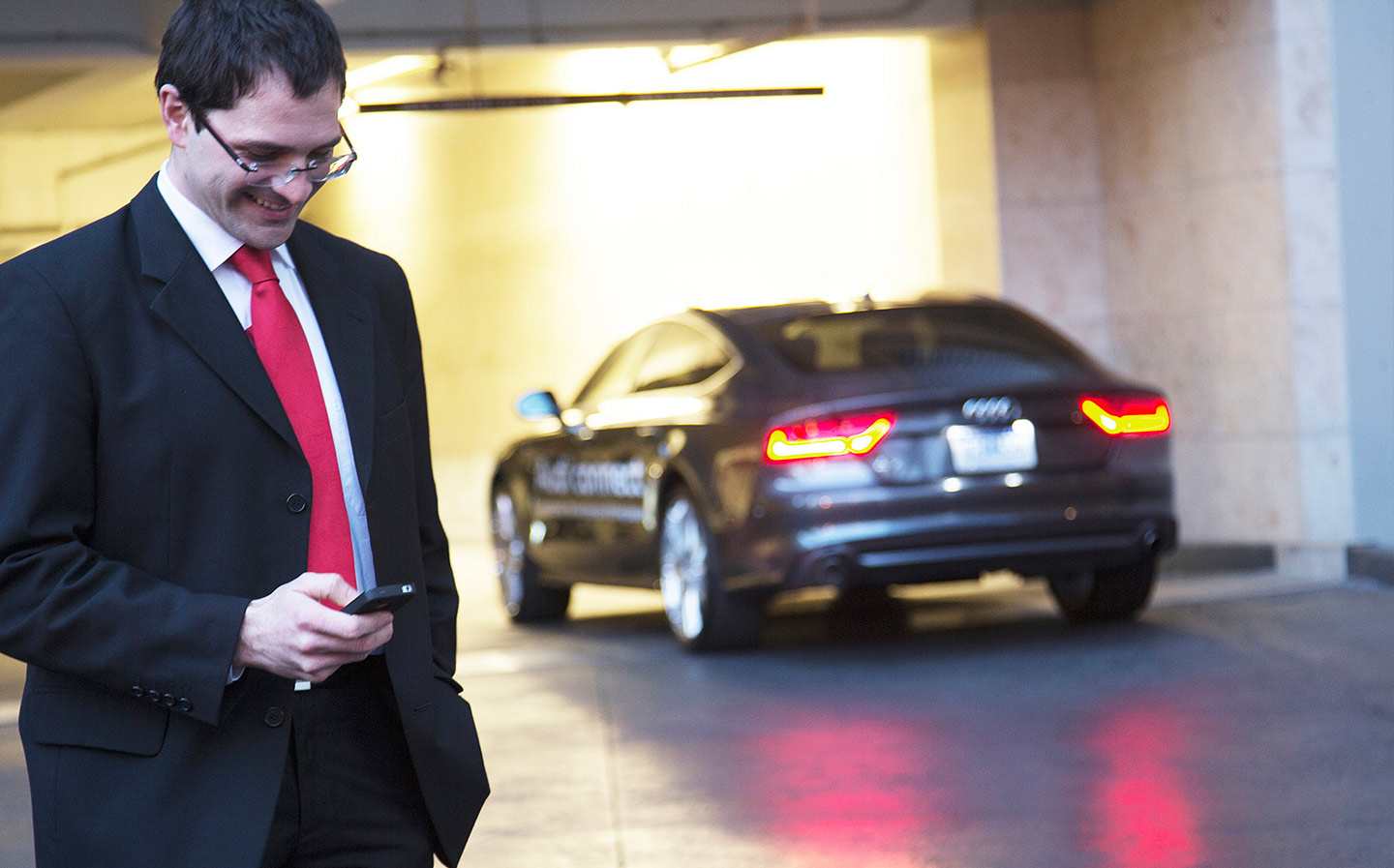Parking your car by remote control to be legal on UK roads from June
But drivers still required by law to be in "overall control" of their vehicle
NEW laws will allow drivers to use their car’s key fob or smartphone app to legally remote-park their vehicle on British roads.
Many new cars are fitted with a variety of semi-autonomous systems, from automatic active braking to lane-keeping technology. One of the latest developments, that is already possible on cars from BMW, Audi and Tesla, is the ability to park via remote control.
However, out-of-date laws have meant that controlling a road car via remote control on public roads has been illegal.
Browse NEW or USED cars for sale
The outgoing regulation says that drivers can’t even hold a mobile device while in their vehicle, let alone use one to remotely control it, but the new regulations mean that from June, drivers will be able to do so anywhere up to six metres from their vehicle.
Liability for any accidents as a result of remotely parking will still rest with the driver, though, as the law changes still require them to “maintain overall control of their vehicle”.
In a statement, the DfT said: “Developments like remote control parking and motorway assist have the potential to transform car travel for those with mobility challenges, unlocking tight parking spaces and using computers to help driver accuracy on the road.
“Not only that, but technology has the potential to make driving more energy efficient meaning cheaper, cleaner journeys, with improved air quality for both drivers and pedestrians.”
“Self-driving technologies have the potential to transform car travel for those with mobility challenges and unlock tight parking spaces”
The regulation changes, which will also be reflected in the Highway Code, are being introduced following a consultation earlier this year. The Department for Transport says the proposals received “overwhelming support from a range of groups” including car makers, insurance groups and haulage companies.
The DfT added that the rule updates will provide clarity for motorists about how the technologies can be used, and ensure the law is flexible enough to allow for future technological breakthroughs.
Mike Hawes, Chief Executive of the Society of Motor Manufacturers and Traders, believes self-driving technology will make our roads safer.
He said: “Connected and autonomous vehicles will transform our lives, with the potential to reduce up to 25,000 serious accidents and create more than 300,000 jobs over the next decade.
Browse NEW or USED cars for sale
Transport Minister Jesse Norman said: “Advanced driver assistance systems are already starting to revolutionise driving. It’s encouraging to see the strong support for these innovations from a range of stakeholders. We will continue to review our driving laws, in order to ensure drivers can enjoy the potential of these new tools safely.”
The government also recently tasked the Law Commission with a detailed review of driving laws to ensure the UK remains an attractive place for companies to develop and test self-driving technologies.
The DfT recently designated the future of mobility as one of the UK’s four “grand challenges” and aims to see fully self-driving cars on UK roads by 2021.
Hawes added: “Today’s announcement is just one step towards increasing automation but it is an important one enabling increased convenience especially for those with restricted mobility.
“It is another welcome commitment from government to keep the UK firmly at the forefront of connected and autonomous vehicle development and rollout.”





